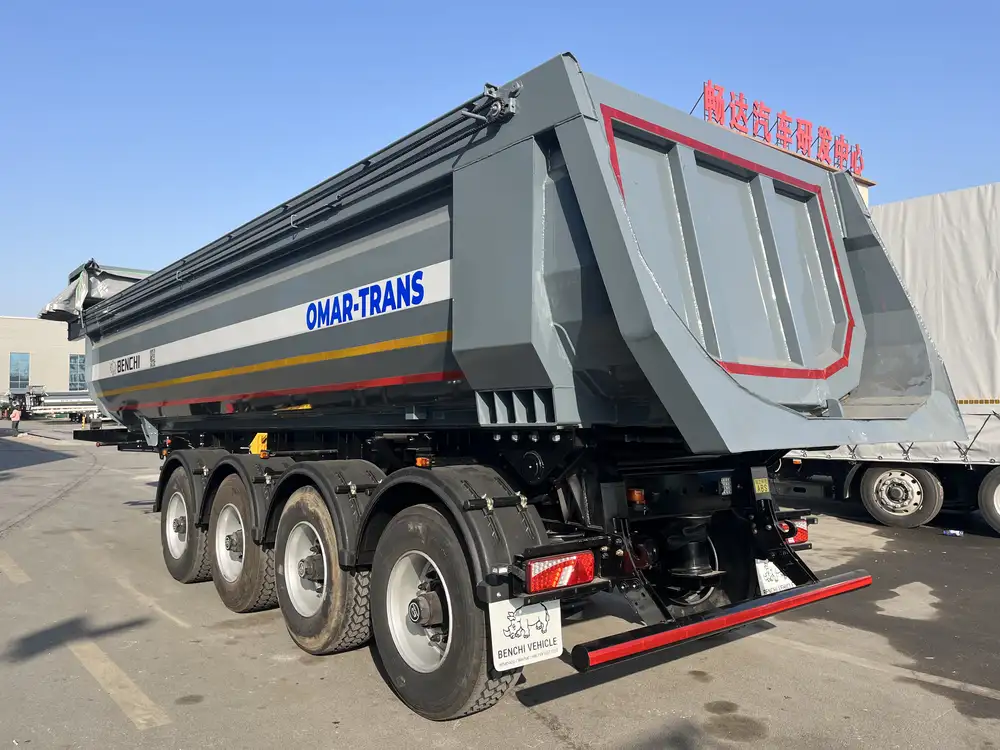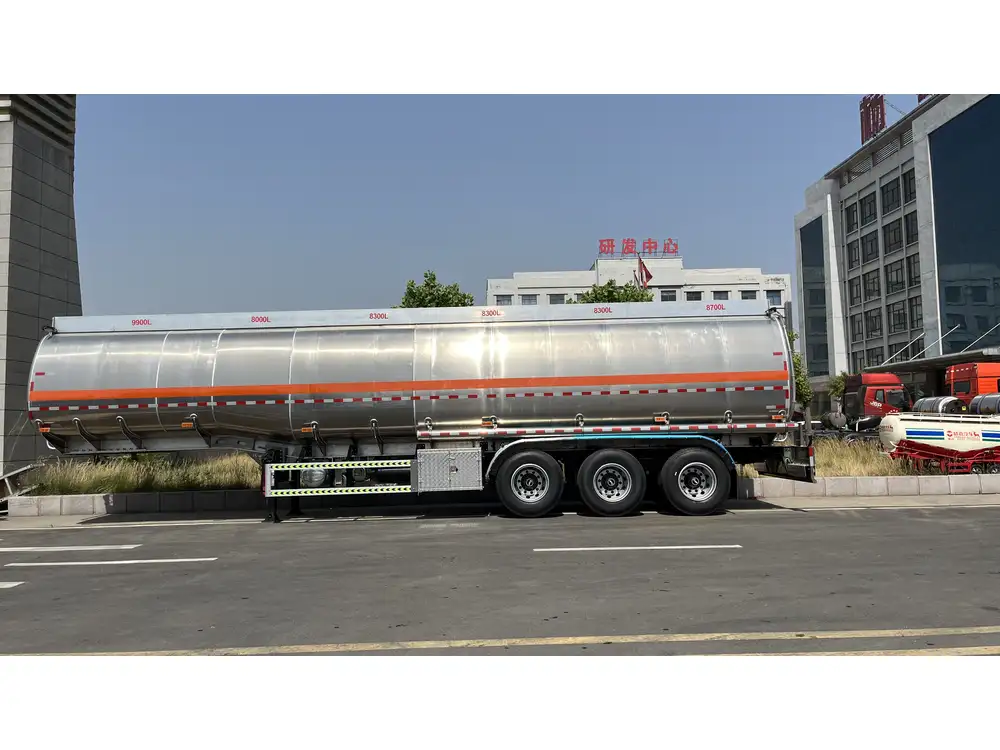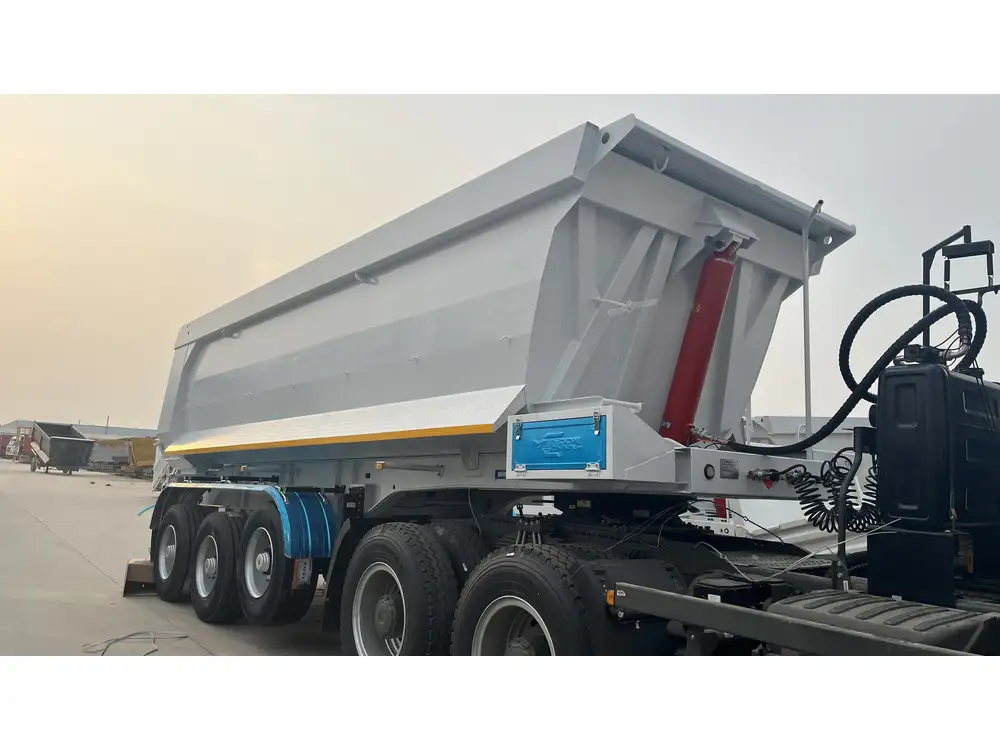Introduction
Dump trailers are an essential investment for various industries, from construction to landscaping. At first glance, one may wonder why such a robust piece of equipment would require a battery. However, as we delve into the mechanics and functionality of a dump trailer, it becomes clear that a battery is not just an accessory but a critical component that enhances performance and reliability. In this article, we will explore the intricate relationship between dump trailers and their batteries, addressing questions that may not come to mind but are vital for optimal operation.
The Functionality of a Dump Trailer

Overview of Dump Trailers
A dump trailer is designed to transport and load materials, allowing for efficient unloading through a powered lift mechanism. They come in various sizes and capacities to suit different hauling needs. The ability to easily raise and lower the trailer bed is paramount to efficiency, making the role of the battery crucial.
How the Lift Mechanism Works
At the heart of a dump trailer’s operation lies a hydraulic system powered typically by a battery. This system consists of a pump, hydraulic fluid, and a series of cylinders that facilitate the lifting and lowering of the trailer bed. By engaging the battery-operated hydraulic pump, users can control the flow of hydraulic fluid to the cylinders, enabling smooth and effective lifting operations.
Why Does My Dump Trailer Need a Battery?
Understanding the necessity of a battery in your dump trailer requires an examination of several key functions:

1. Powering the Hydraulic Pump
The hydraulic pump relies on electrical power, which is supplied by the dump trailer’s battery. When you activate the hydraulic lift, the battery provides the necessary energy to the pump, which in turn lifts the trailer bed. A reliable battery ensures the hydraulic system operates efficiently and consistently.
2. Enhancing Operational Flexibility
In the field, accessibility to power sources may be limited. A battery-operated dump trailer allows operators the flexibility to perform lifting operations independently without needing a generator or external power supply. This autonomy is a significant advantage on job sites where mobility and efficiency are paramount.
3. Improving Safety and Control
Battery-powered dump trailers come equipped with safety features that prevent accidental discharge of the hydraulic lift when not in use. The presence of a well-maintained battery allows for reliable electrical connectivity, ensuring that safety mechanisms work correctly. This prevents unforeseen mishaps that could result from hydraulic system failures.

4. Supporting Additional Features
Modern dump trailers often incorporate additional electrical features—such as LED lights, backup alarms, and GPS tracking systems—that rely on a robust battery system. These features are designed to enhance visibility, safety, and monitoring capabilities, contributing to a more efficient working environment.
Common Concerns Related to Dump Trailer Batteries
Why Does My Dump Trailer’s Battery Keep Dying?
One question that frequently arises among users is battery longevity. A few factors contribute to this issue:
- Overuse: Repeated lifting or lowering of the trailer without allowing the battery to recharge can lead to premature decline in battery life.
- Poor Maintenance: Lack of regular checks, including fluid levels and terminal connections, can cause corrosion and inefficiency in battery performance.
- Environmental Factors: Exposure to extreme temperatures can negatively impact battery life. Batteries should be stored in controlled conditions when not in use.

How Often Should I Replace My Dump Trailer Battery?
Battery lifespan can vary, typically lasting from 2 to 5 years depending on usage, maintenance, and environmental conditions. Signs indicating that it may be time for a replacement include:
- Slow Hydraulic Response: A significant lag when activating the hydraulic lift may point to a weakening battery.
- Frequent Recharge Needs: If your battery needs frequent charging, it may be nearing the end of its effective life.
Battery Types Suitable for Dump Trailers
Choosing the right battery is essential for optimal performance. Here are some popular options:
1. Lead-Acid Batteries
Lead-acid batteries are common in many dump trailers due to their cost-effectiveness. They come in two types:
- Flooded Lead-Acid: Requires regular maintenance and topping up with distilled water.
- AGM (Absorbed Glass Mat): Sealed batteries with low maintenance needs; great for vibration resistance.

2. Lithium-Ion Batteries
Lithium-ion batteries are gaining popularity because of their lightweight design and longer life span. They require less maintenance and can withstand deeper discharges without damage.
3. Gel Cell Batteries
Gel cell batteries are another viable option, offering good deep-cycle capabilities and resistance to vibrations. They are ideal for conditions where battery orientation may vary during use.
| Battery Type | Lifespan | Maintenance | Cost | Weight |
|---|---|---|---|---|
| Lead-Acid (Flooded) | 2-5 years | Moderate | Low | Medium |
| Lead-Acid (AGM) | 3-7 years | Low | Medium | Medium |
| Lithium-Ion | 5-10 years | Very Low | High | Light |
| Gel Cell | 3-5 years | Low | Medium | Medium |
Maintenance Tips for Dump Trailer Batteries

Regular Inspection
Conduct routine inspections of the battery, checking for corrosion on terminals, ensuring clean connections, and monitoring fluid levels (for flooded batteries). Pay special attention to:
- Visual Damage: Look for cracks or leaks.
- Cable Connections: Ensure connections are tight and corrosion-free.
Charging Practices
To prolong battery life, adhere to the following charging practices:
- Use the Correct Charger: Always use a charger compatible with your battery type, reducing the risk of overcharging.
- Charge After Use: Make it a habit to recharge after each use to maintain optimal charge levels.
Seasonal Care
In climates experiencing significant temperature fluctuations, extra precautions are necessary:
- Store Indoors: If possible, store your battery indoors during harsh weather conditions.
- Insulate: Use battery covers or insulation wraps to protect against extreme temperatures.

Troubleshooting Common Battery Issues
Should you encounter problems with your dump trailer battery, consider these troubleshooting steps:
Problem: Hydraulic Lift Not Operating
- Check Battery Charge: Ensure the battery is fully charged. Use a multimeter to check the voltage.
- Inspect Wiring and Fuses: Look for loose connections or blown fuses that may interrupt power flow.
Problem: Slow or Unresponsive Pump
- Battery Condition: Test the battery’s health with a load tester. A weak or faulty battery may need replacement.
- Hydraulic Fluid Levels: Verify that hydraulic fluid is at proper levels, as low fluid can lead to pump inefficiency.

Conclusion
In conclusion, the role of a battery in your dump trailer is multifaceted, offering power, flexibility, and enhanced operational safety. Understanding its significance can help optimize your trailer’s performance and longevity. With regular maintenance, proper care, and the correct choice of battery, you can ensure that your dump trailer remains a reliable asset for all your hauling needs.
The complexity of managing a battery-powered dump trailer might seem daunting at first; however, mastering this knowledge will ultimately lead to increased efficiency and reduced costs in your operations. By addressing potential battery-related concerns and understanding the underlying mechanics at play, users can navigate the world of dump trailers with confidence and expertise.



